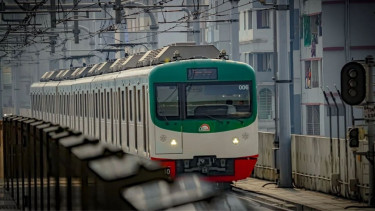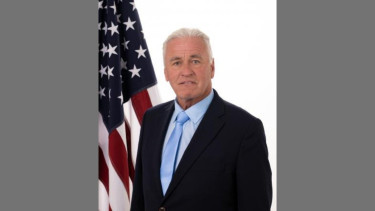More News
Trending
- Khalilur to attend Colombo Security Conclave meeting in New Delhi next week
- BNP weighing review of ‘controversial’ nominations
- WTO to continue technical assistance to Bangladesh after LDC graduation
- BEZA hands over 30 acres land to Delta Life Sciences in NSEZ
- Public blocks advisers’ motorcade in Bhola
- Modi's coalition set for big win in a key state election, bolstering his popularity
- NCP leaders meet IMF mission team for policy discussion
- From Haiti to Ethiopia: Voices of climate displacement at COP30
- 3 cops come under attack while investigating case in Feni
- Nagad urges customers not to worry about Google Play Protect warning on app
- Hamza carrying the burden now, but for how long?
- Only an elected govt can resolve Bangladesh’s problems: Amir Khasru
- Bangladesh eye strong showing in Davis Cup campaign
- Bashundhara Strikers cruise into final with six-wicket win
- Chinese astronauts return from space station
- Hungary to sue EU over ban on Russian gas imports
- July Charter Implementation Order contains ‘many ambiguities’: NCP
- 12 platoon BGB deployed in Dhaka, adjacent areas to maintain law and order
- Focus shifts to sporting wickets before Mirpur Test
- TCB truck sales to resume Saturday after two months
- BNP’s Farooque urges people to vote ‘no’ in July Charter referendum
- Bodies of two missing youths recovered after trawler sinks in N’ganj
- Referendum only way to give July Charter legal validity: Parwar
- Tensions rise amid illegal arms galore before polls
- Campaigning for Khaleda begins in Dinajpur-3
- ‘Yes/No’ on 4 proposals: A case of Hobson’s choice
- Excluding women from development is a serious mistake: Army Chief
- Bangladeshi cultural show ends with gesture of harmony
- Teesta turns dry, locals face severe hardship
- ‘Medical malpractice’ continues as draft law stalls





